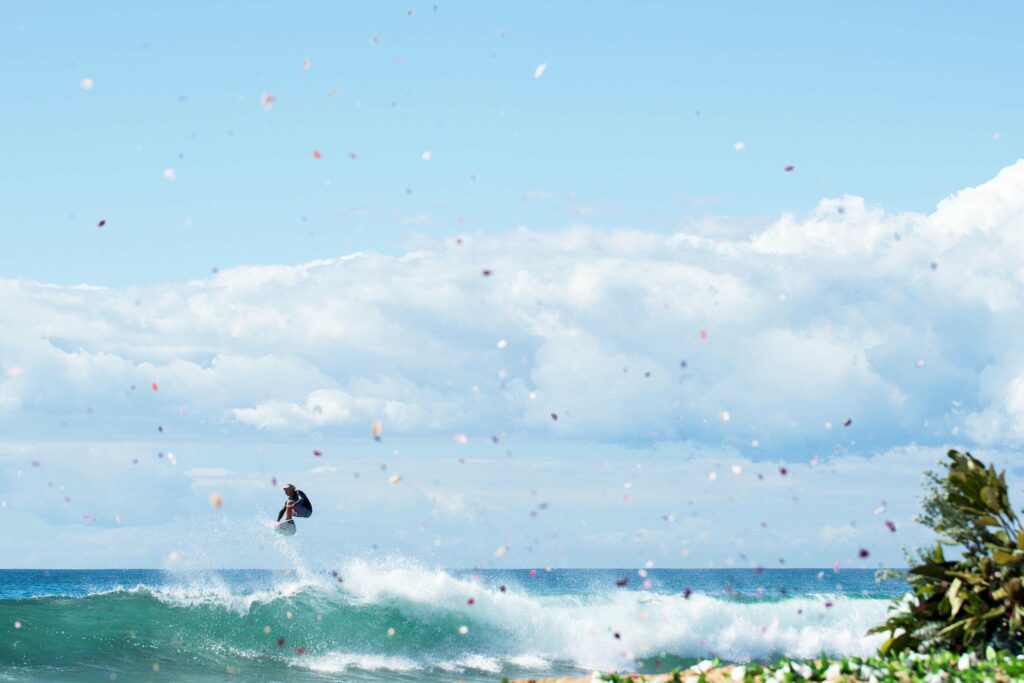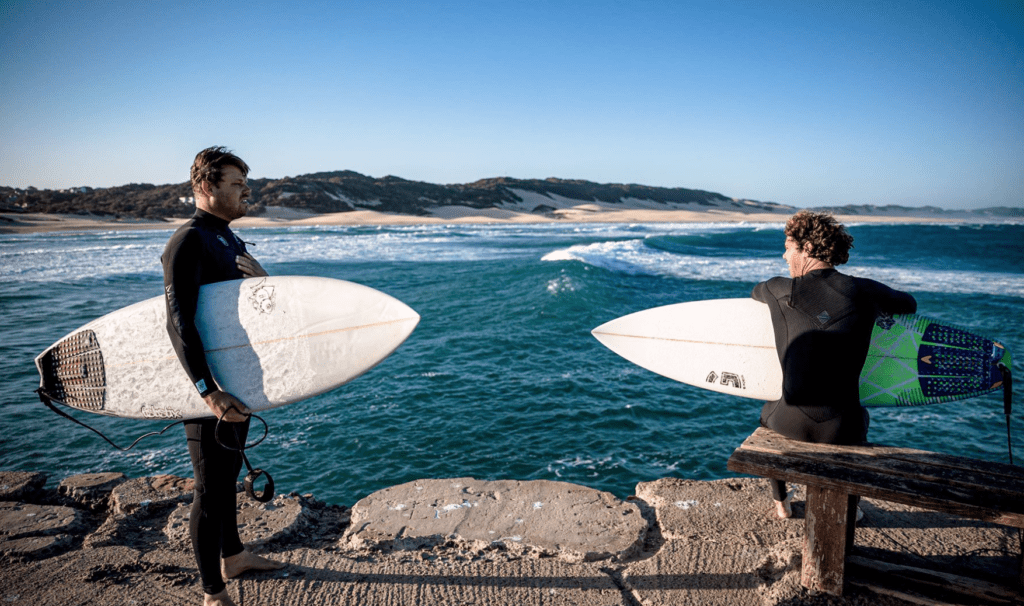The Legitimacy Of Surfing As A Mental Health Therapy
“If there was a pill that conferred all the beneficial effects of surfing, it would be the most widely prescribed drug there’s ever been.”
As surfers, we are blessed to have an outlet that channels our headnoise productively.
We intuitively understand that surfing is therapeutic. The shoreline represents a bullshit barrier where the cacophony of politics and drama is drowned out by the brine. The body becomes weightless, the mind’s tension is eased and we step into a new world where the challenges of everyday existence are momentarily forgotten.
The past eighteen months of COVID have been a hell of a tough time for people, and the simple ability to get a wave in and wash off the figurative plaque from one’s daily exposure to the chaos of life has never seemed so essential.

Mandated isolation and social distancing took their toll on the world’s mental health. In Australia, nine people ‘successfully’ complete suicide every day, up 7% from the year previous. It’s a crisis because it’s a preventable problem. No one should ever have to consider that their life is over and that there’s no reason to live anymore. As humans, we can do a lot better at supporting each other to make sure people aren’t slipping through the cracks.
‘Surf Therapy’ is a direct response to the gaps in mental healthcare services that don’t resonate with everyone or offer the kind of support that is sometimes needed. Unlike checking yourself into a clinic, surfing is relatively approachable and free from stigma, which are often major barriers to seeking mental healthcare.
Joel Pilgrim has seen the life-changing and life-saving effects firsthand. He started his career as an Occupational Therapist in Sydney and started getting involved in Surf Therapy with OneWave. He earned a Masters Degree in Psychiatry from the University of New South Wales and became a university lecturer and international speaker. In 2016, he founded Waves of Wellness, an organisation using surfing for mental health therapy,
“I was told that this idea of surf therapy would never work, ‘there’s too much risk and there’s too much red tape and it’s never going to happen’,” he explains, “but that’s a very risk-averse way of looking at sustainability, growth, and innovation.”

Unlike conventional therapy, surfing addresses holistic health through mental and physical exercise. In a recent study published in the Journal of Adventure Education and Outdoor Learning, surfing’s therapeutic mechanisms were speculated to arise from the down-regulation of stress hormones, the release of mood-elevating neurotransmitters, the production of anti-inflammatory molecules, recalibration of circadian rhythm, reducing rumination and increasing feelings of competence, autonomy and connectedness to community and nature.
Let’s put it this way: If there was a pill that conferred all the beneficial effects of surfing, it would be the most widely prescribed drug there’s ever been.
Everyone in the world is touched by mental ill-health at some point in their life, either directly or through somebody they know and love. There is a need to normalise the conversations around mental health so it can be viewed with the same tabooless, respect-demanding, yarn-warranting intrigue as physical health problems like an Indonesian reef laceration.
“Storytelling of lived experience is a powerful way to bring people together and connect. People routinely go, ‘Oh my God, that is basically the same story I’ve been through’,” Joel says.
The International Surf Therapy Organisation (ITSO) was founded in 2017 and now partners with 30 organisations globally, aiming to increase therapeutic benefit via research collaboration between surf therapy programs. The goal is to have surfing clinically prescribed as a mental health treatment by GPs within the next 5 years.
The recognition of surfing as a form of mental health therapy does not invalidate the conventional clinical approach which may work better for certain people or provide additional support. It’s simply something new in the clinical quiver.
The one thing clear in mental health management is that there are no panaceas and no ‘one-size-fits-all’. Not even surfing. Even guys who regularly pack ten-foot cones can suffer from depression and may require external support.

This is also why surf therapy organisations actively look to recruit ‘unicorns’. Mental health trained clinicians with intermediate surf coaching accreditation who can provide specialised mental health support on the sand. “They’re unicorns because they’re hard to find,” Joel laughs.
“If you are going through a tough spot it’s important to pick your tribe and share what’s happening for you with the people you trust. You don’t owe every piece of your life to everyone, but you owe it to yourself to not hold it in—that can lead to you feeling trapped or alone. By addressing the elephant in the room, you’re normalising it, and you’re permitting people to start a dialogue,” he concludes.
We wrap up our interview and I drive home past the beach. It’s late and I’m stressing about an approaching deadline for an assignment I’m yet to start. The wind’s onshore, the tide’s low and the waves look ordinary. I pull out my board from the car and sprint down to the sand. The channel’s sucking and I’m out the back in a few strokes. I duck under a set and the water washes my face clean.
I have only one thought.
Damn it’s good to wet the gills.


















Comments
Comments are a Stab Premium feature. Gotta join to talk shop.
Already a member? Sign In
Want to join? Sign Up